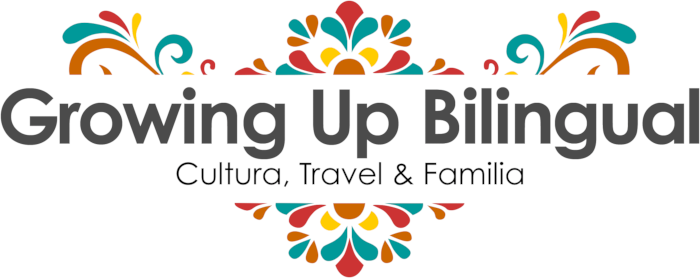
Even though I am immersed in English dominant environments most of the day when it comes to expressing feelings, especially love, Spanish comes naturally. Amor, cariño, amistad, pasión … all of these words have a stronger sentimental value for me than the same words in English and when I talk to my children to express how I feel about them I will tell them: los amo, los quiero mucho, etc (I love you, I care about you a lot) instead of telling them that I love them.
For some reason, probably because I went to an American school, writing flows easier in English even though I can translate and write text in both languages quite easily, but when I end an English email to a friend or family member I usually write “un abrazo” or “con cariño” in Spanish.
According to Psychology Today’s article “Emotions in More than One Language” the belief that bilinguals express their emotions in their first language (when they haven’t acquired both languages simultaneously), usually the language of their parents, is just a myth. The article goes on to say that like all myths, there are instances when it is true. But that expressing emotions in more than one language follows no set rules; some bilinguals prefer to use one language, some the other, and some both. For me Spanish is certainly my language of love but I do admit that this does not hold true for all feelings: if I accidentally hit my pinkie on the leg of the table I might curse in English.
When it comes to Spanish my 5 year old, who has been in the USA since he was 3 months old, sometimes has a hard time speaking it and most of the time I have to remind him to use Spanish words as he tends to answer me in English. But he has no problem telling me te amo or te quiero (I love you, I care about you) . He has been hearing love words in Spanish since hi was born spoken by all of the people who care about him from his mom and dad to his abuelita and abuelito.
Now that Valentine’s is approaching and there is talk about love everywhere we have taken advantage of this opportunity to have conversations about amor y amistad with both of my children. We are making tarjetas del Día del Cariño (Valentine’s cards) in Spanish for all of our family members and we are reading Spanish books about love and friendship, you can see our favorites HERE. I am also sharing some of my favorite love poems with my children.
Using the minority language to teach your children about emotions is a great tool and motivator to reinforce that language, so take advantage of it.
What Valentine’s activities are you doing at home in your child’s minority language?



You’re children are very lucky to be able to be brought up with 2 languages and a great mom for wanting to share and express to her children love in not one, but two languages!
I can hear a song in English and then hear the same lyrics in Spanish and I feel the love & passion so much more lol
I think it’s great that your kiddos are learning two languages in the home. We only speak english but my son is taking spanish in school so I’ve had to brush up on some of my spanish learning from high school.
It’s great that you’re kids are getting to learn two languages. I wish I was more fluent in another language so mines can learn two as well.
I enjoyed reading your post. I used to teach primary students in a bilingual school and it was always interesting when we would discuss things going back in forth from Spanish to English. Being bilingual is such a blessing, I think.
Both my children are bilingual. They also go to Guatemala to visit family almost every summer so its great that they can hold a conversation with our loved ones there.
My husband is bilingual, he some times talks to me in Spanish.
This is true. It feels as if there’s more feelings in it and it feels more genuine.
WOW! Your children have no idea how lucky they are, being brought up in a bilingual family! My girls have been taking Spanish classes throughout high school and I hope they stick with it. So many more opportunities for you, if you know more than one language!
No place like home to learn language and make it completely natural (not have to think about it).
Paula, this is really interesting, because my elderly Alzheimer parents are more comfortable saying “I love you” than “te quiero” … even though they are Spanish-language speakers. I always felt that saying it in English puts up a certain barrier — not a bad one — it’s just always “weird” to say it in Spanish.